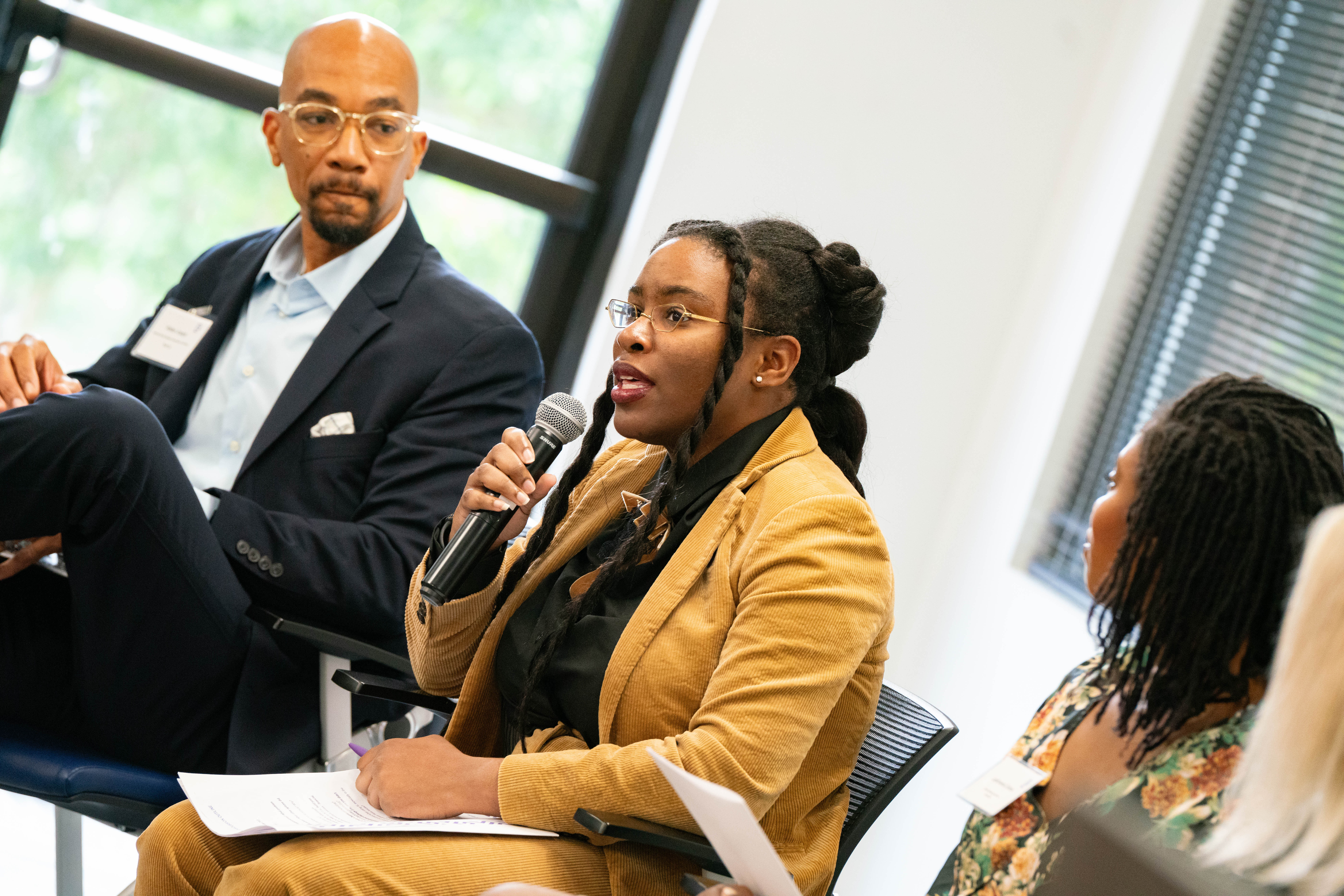Whether you are a parent, grandparent, guardian, or neighbor, your role in the lives of the children in your community is crucial. You have the power to protect and educate them, serving as a source of inspiration and guidance. Above all, you can be their advocate, championing their rights and well-being. Together, we can make a difference in the lives of these young individuals.
NOTE: As of Feb. 29, 2024, Carolina Youth Development Center (CYDC) has rebranded to Landmarks for Families. Our nonprofit, community programs and residential services remain committed to cultivating thriving youth and families in this new chapter.
What is advocacy?
Advocacy means actively and passionately working to ensure that your child’s needs and best interests are acknowledged, respected and met. Being an advocate involves standing up for your child – whether that be at school, the doctor’s office or even at home – to guarantee they receive fair treatment and opportunities.
Being an advocate requires collaboration. It means working with educators, healthcare providers and others, aiming to create a supportive and inclusive environment that nurtures your child and fosters their development.
How does my advocacy support my child?
As a parent or guardian, you are the chief champion for your child and being an effective advocate is a skill that can make a significant difference in their life.
By advocating for your child, you contribute significantly to their holistic development, setting the stage for a future where they feel supported, confident and capable. Children benefit from our active participation in their lives in the following ways:
- Enhanced Self-Esteem
- Improved Academic Performance
- Social Skills Development
- Emotional Resilience
- Sense of Belonging
- Empowerment and Independence
- Healthy Relationships
- Life Skills Acquisition
How can I become an advocate for my child?
Advocacy is more than just speaking up; it’s about understanding your child’s unique needs and rights and ensuring they have the resources necessary to grow. As an advocate, you will wear many hats. You may be a researcher, a communicator, and at times, simply a sideline supporter – sometimes the most important of all.
Know Your Child’s Needs: To be an effective advocate, you must truly know your child. What are their strengths? What challenges do they face? In which environments do they thrive? This knowledge serves as the basis of your advocacy efforts.
Educate Yourself: Effective advocates are lifelong learners. Take the time to educate yourself on your child’s conditions (if any) and the resources available to them. Knowledge is your ally, empowering you to navigate systems, ask the right questions and make informed decisions.
Build Collaborative Relationships: Advocacy isn’t a solo mission. Forge strong partnerships with teachers, healthcare providers and your fellow parents (and us!). These relationships offer more than support for your child. They can be a source of strength for you, too!
Establish Effective Communication: Expressing your child’s needs clearly and confidently is crucial. Develop effective communication skills, ensuring you can articulate your concerns, questions and desired outcomes with your partners. Remember, you are your child’s voice and, by watching you, they learn to advocate for themselves in the process.
Embrace a Positive Approach: While advocacy involves addressing challenges, maintaining a positive approach is key. Frame your discussions around solutions, emphasizing your child’s strengths and potential. This positivity fosters cooperation and understanding.
Attend Workshops and Support Groups: Advocacy is a skill that can be honed. Attend workshops and support groups to learn from others, share experiences, vent frustrations and gather valuable insights. These platforms offer both knowledge and emotional support.
Celebrate Small Wins: Sometimes in life, it’s the little moments that mean the most. Celebrate the small victories, whether it’s improved support in the classroom or a noticeable positive change in your relationship. Recognizing your family’s progress is a motivator that cannot be overlooked.
CYDC Is Helping Empower Lowcountry Youth
With more than 200 years of experience supporting South Carolina’s youth and families, Carolina Youth Development Center is equipped to lead your child or family through life’s challenges. Whether on-site or in-home, our compassionate team is ready to meet you where you are with the services you need. Contact us today to learn more about our programs and speak with a member of our team.


